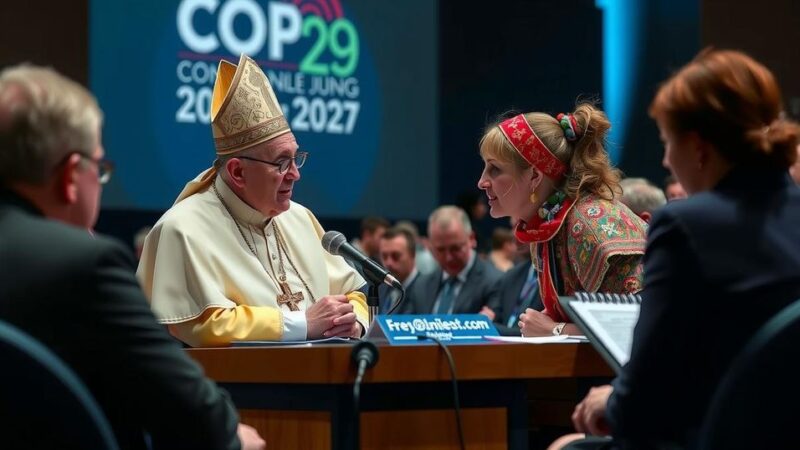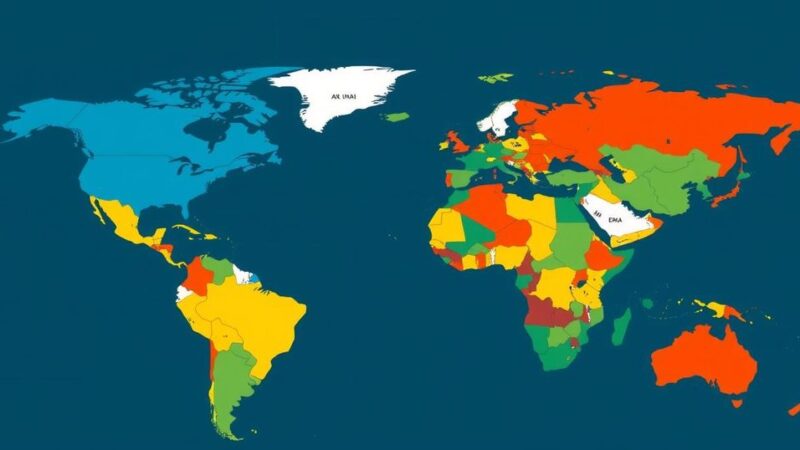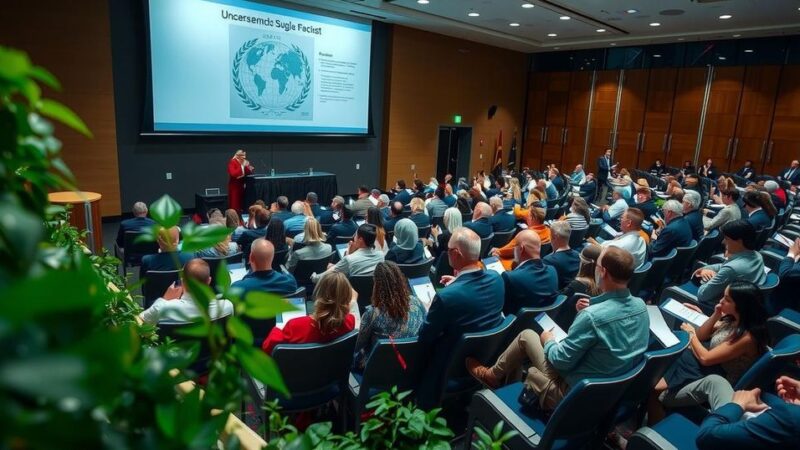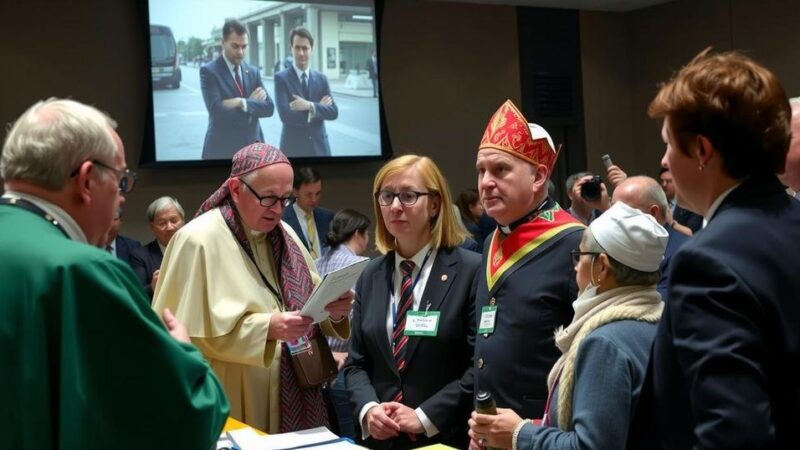The COP16 in Colombia addresses the crucial relationship between nature and climate change alongside the establishment of ambitious biodiversity targets. Despite the call for action, progress on fulfilling National Biodiversity Strategies has been slow. The business case for biodiversity is increasingly pertinent, as risks tied to ecosystem degradation mount. Moreover, the allocation of significant financial resources to harmful practices complicates efforts. A shift towards nature-positive systems is essential, demanding urgent policy and finance innovations to effectively address these intertwined crises.
The Conference of the Parties (COP16) is convening in Colombia, highlighting the critical link between nature and climate change. In this context, the 2022 Kunming-Montreal Global Biodiversity Framework (GBF) sets ambitious targets, including the preservation of 30% of degraded ecosystems by 2030 and the mobilization of $200 billion annually to address biodiversity funding shortages. Despite these targets, progress has been sluggish, with approximately 90% of countries failing to fulfill their obligations to submit National Biodiversity Strategies and Action Plans (NBSAPs), which poses a significant challenge to the ongoing efforts to integrate biodiversity protection into economic policies and practices. The business imperatives surrounding biodiversity are becoming increasingly clear. Corporations are beginning to recognize that their operations are intricately tied to the health of natural ecosystems, and the financial risks associated with biodiversity loss are mounting. Reports from institutions like the World Bank indicate that nature-related risks could directly impact approximately 10% of GDP in developing nations, necessitating immediate action from both the public and private sectors. Moreover, funding directed towards environmentally harmful practices, particularly in agriculture, fishing, and fossil fuels, continues to undermine biodiversity initiatives. Trillion-dollar subsidies in these sectors reinforce detrimental practices rather than promote sustainable solutions. Initiatives such as the Bridgetown Initiative aim to reshape climate finance, advocating for equitable resource allocation and effective debt restructuring. The call for a nature-positive outlook is paramount, with an urgent need for businesses to establish clear and measurable targets aligned with biodiversity restoration efforts. A strategic approach that includes comprehensive policies, innovative finance mechanisms, and robust metrics is essential to facilitate the transition towards a more resilient economic framework that prioritizes natural ecosystems. As business leaders increasingly participate in these discussions, the COP16 represents a crucial opportunity to catalyze meaningful change and foster a sustainable future for both the economy and the environment.
The interdependence of nature and climate change has become a focal point in global environmental policy discussions. The recent COP16 meeting in Colombia underscores the need for coordinated action to tackle both climate change and biodiversity loss concurrently. The Global Biodiversity Framework (GBF) established high-level targets aimed at enhancing ecosystem protection and mobilizing necessary financing to bridge the biodiversity funding gap. Observations from previous COP meetings indicate that while frameworks exist, actual implementation has lagged significantly. This context necessitates an exploration of the dynamics influencing biodiversity financing and corporate engagement in sustainability initiatives.
In conclusion, the COP16 presents a pivotal moment for nations and corporations to align their strategies with nature-positive goals, emphasizing the integral relationship between biodiversity conservation and economic viability. The urgency of addressing nature-related risks requires immediate and comprehensive action across sectors, coupled with a collective effort to reorient financial flows towards sustainable practices. The need for clear metrics and accountability is essential to ensure that progress is not only made but also measurable, reinforcing the critical role of nature in sustaining our global economy.
Original Source: www.forbes.com






